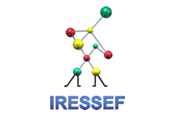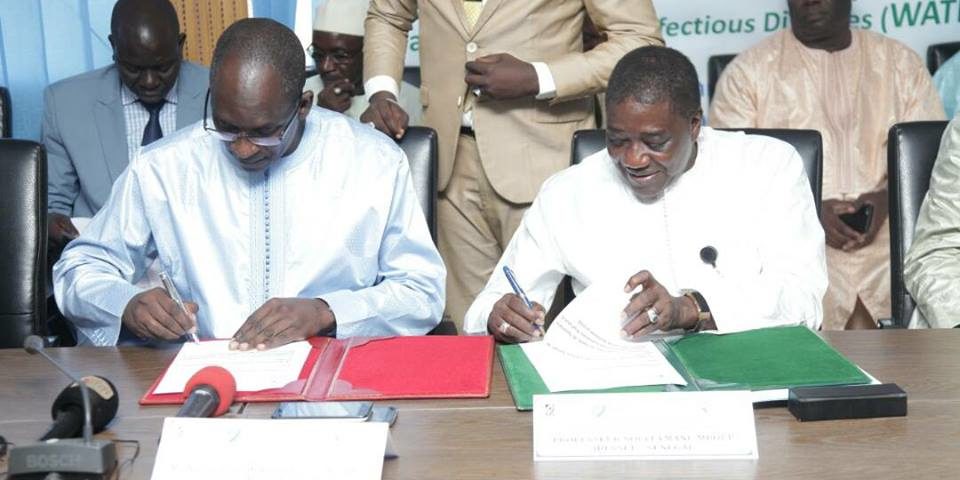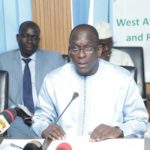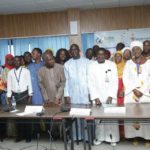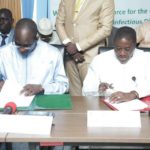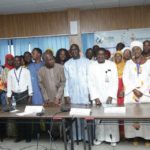Six (6) months after its inauguration by the President of the Republic, Macky Sall, the Institute for Health Research epidemiological surveillance and training (Iressef) Diamniadio (Dakar) signed a partnership agreement with the Ministry of Health and Social Action of Senegal.
The objective of this partnership, according to Professor Souleymane Mboup, president of this institute, is to contribute “without any doubt” to the achievement of the main objectives of research and training of both parties and fully related to the needs of the populations. Specifically, it will allow the availability of human and material resources necessary for the execution and sustainability of activities.
Also, adds Professor Mboup, this convention will allow the Iressef to achieve its research and training objectives. “This convention that we are going to sign together today is justified in more than one way. It determines the methods of collaboration between the Ministry of Health and Social Action and the Iressef in the field of research, health training, biomedical diagnosis and epidemiological surveillance and especially policy support. of health, “he said.
According to Souleymane Mboup, this agreement between his Institute and the Ministry of Health will make it possible to erect the “very first demographic and health surveillance of Senegal” in the district of Sandiara. And which will be the first site of its kind in the country administered by nationals.
The president of Iressef is also committed to giving full life to this partnership.
The Minister of Health and Social Action, Abdoulaye Diouf Sarr, for his part, argued that “there is an urgent need to provide appropriate responses to health challenges, but also unemployment of young graduates.” That’s why, he adds, this partnership agreement came in a timely fashion. He hopes it will enable a “win-win partnership” between the two institutions.
It should be recalled that the said exchange meeting was organized by the West Africa Working Group for the Control of Emerging and Re-emerging Infectious Diseases (Water). It brought together about thirty experts from a dozen countries in Africa, Europe and America as well as international organizations in charge of public health. And its goal was to reflect and share the lessons learned from the latest outbreaks in the African subregion.
